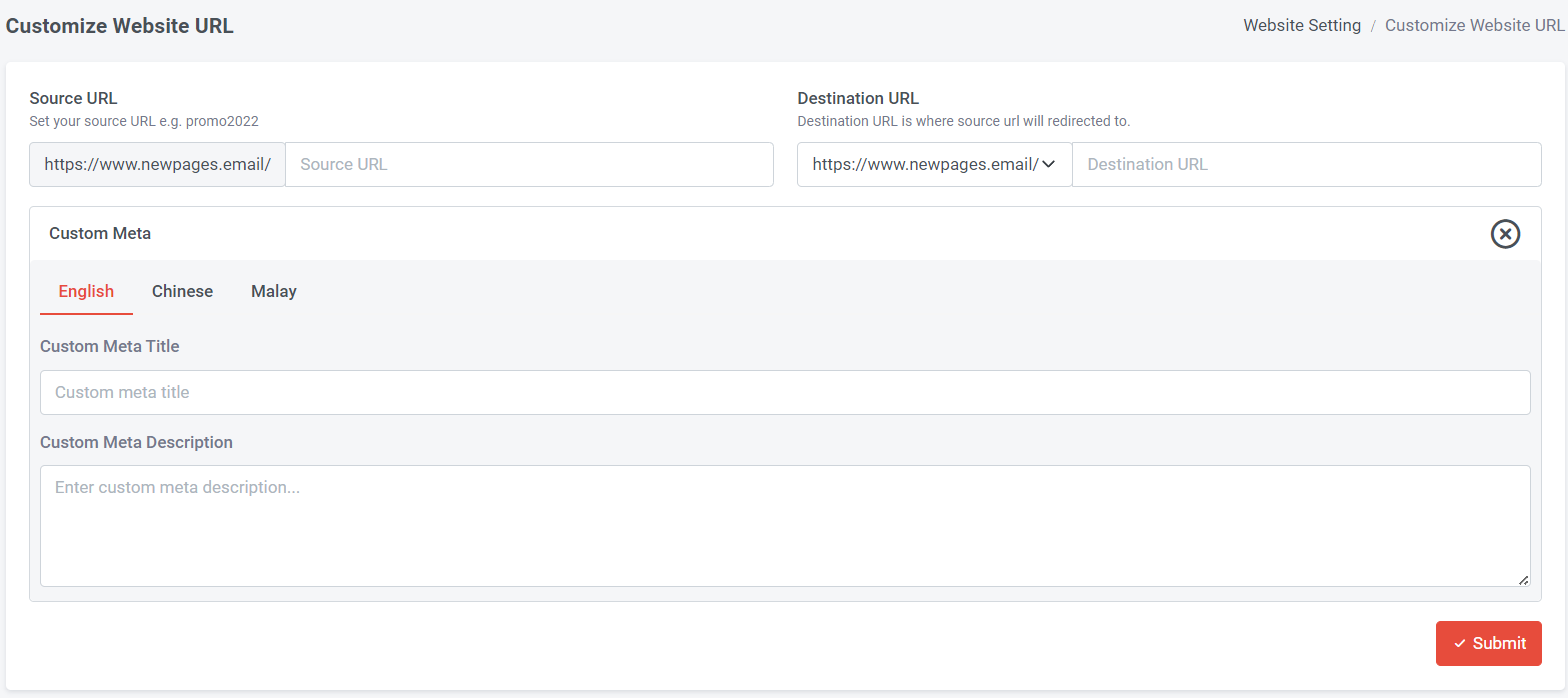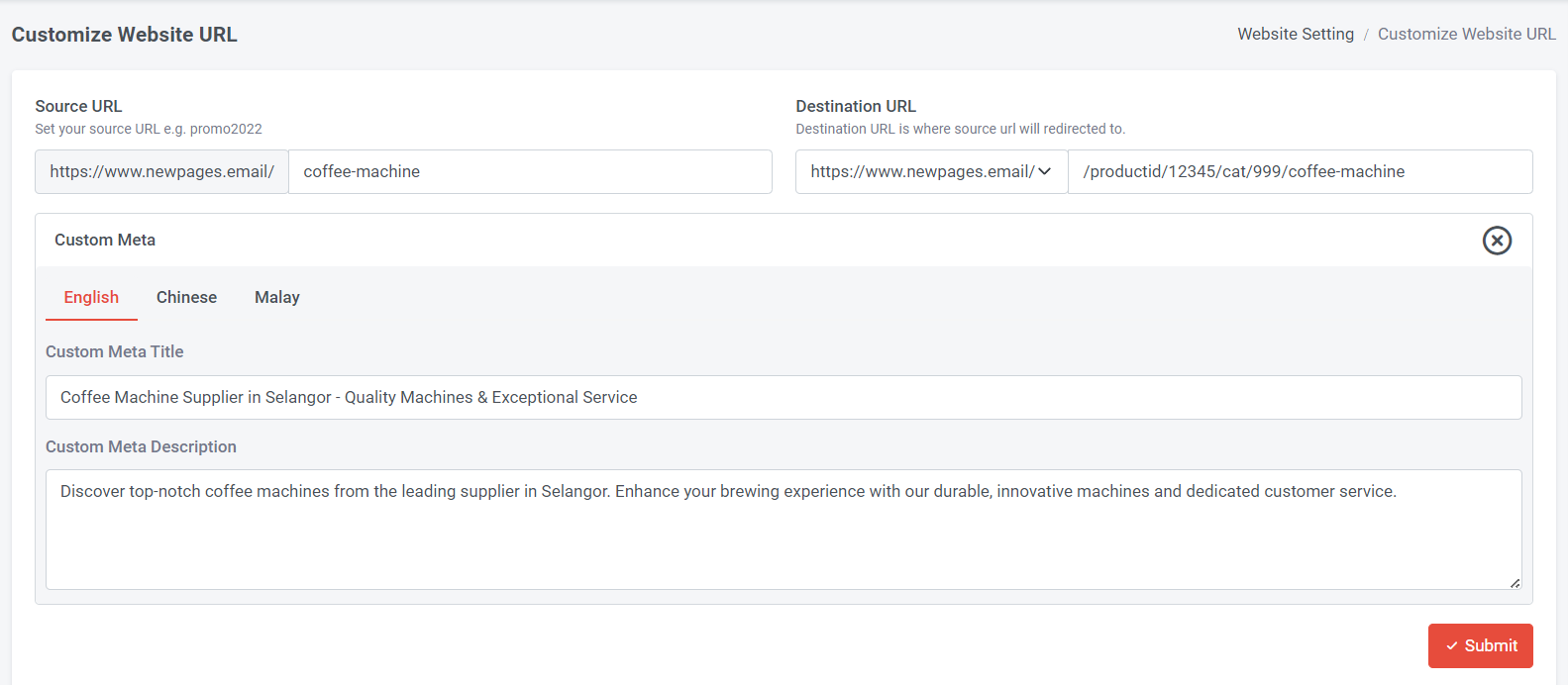Select Categories
Optimize with Customize Website URL
March 26, 2024
Why Customize URL is important?
The structure of a URL is important in SEO for several reasons:
-
Clarity and Context: A well-structured URL provides both users and search engines with a clear indication of what the page is about. Clear, descriptive URLs can improve click-through rates.
-
Keyword Relevance: Including relevant keywords in URLs can signal to search engines the content of the page, contributing to improved rankings for those keywords.
-
Simplicity and Memorability: Simple, clean URLs are easier to remember, type, and share, which can enhance user interaction and engagement with your content.
-
Linking and Sharing: A well-structured URL can serve as its own anchor text when copied and pasted as a link in forums, blogs, social media networks, or other online venues.
-
Hierarchy and Organization: A logical URL structure reflecting site hierarchy helps search engines understand the relationship between different pages and sections of a website, aiding in proper indexing.
For example, instead of https://www.newpages.xyz/pages/pages_id/12345/cat/124/, users will find more easier with https://www.newpages.xyz/aboutus
How to use Customize URL in NEWPAGES Merchant System (NMS) ?
Lets get started from understand what is the meaning of Source URL and Destination URL.
Imagine we wish to customize a coffee machine products with URL "/productid/12345/cat/999/coffee-machine" to become '/coffee-machine' only.
Source URL: The URL that we want to use, such as '/coffee-machine'.
Destination URL: Destination URL is where source url will redirected to. For this example is "/productid/12345/cat/999/coffee-machine".
Important Note: Please do not include your domain inside the input field like 'https://www.newpages.email/coffee-machine'.
Just '/coffee-machine' will do.
Sample input shown as below.

The meta title and meta description are optional fields. You can leave them blank or, even better, customize the meta title and description as you prefer.
Learn more about How to write a SEO Friendly meta title and description.